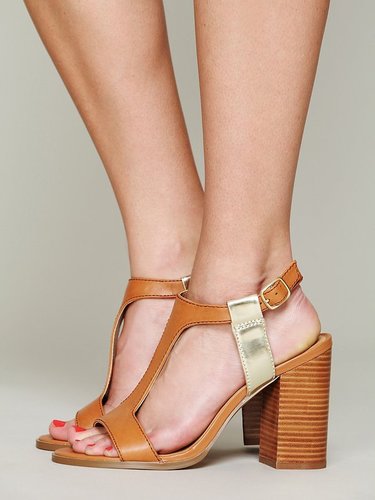There are few opportunities more exciting than a summer backpacking trip through Europe. Before your journey, it’s important to make sure you’re prepared, but it may seem a bit daunting to know where to begin. Luckily, from lodging to transportation, we’ve got you covered. Check out HC’s travel tips to make sure you make the most out of your summer backpacking experience!
Mapping a route
![]()
There are about 50 countries in Europe, so when you’re determining a route, the options are almost endless! If you have no idea where to begin, visit Triptuner. The site provides six basic questions to match you with locations that will best suit your traveling needs. Just specify Europe as your location and slide the “tuners” to adjust the type of trip you are looking for. The site asks questions like: Do you want a relaxing or active trip? A remote or urban destination? A beach or mountain location? After you answer each question, the site suggests locations that match your interests. Triptuner is the perfect starting point to get general ideas for cities you may want to visit.
For more detailed help with route planning, check out Mygola, a site that helps users create custom trips. You can choose a trip from their itineraries and then customize the trip (you can add or delete cities to your heart’s content) to create your dream trip. The site allows you to plan your trip day-by-day, provides the option to book everything you’ve planned right then and there and even gives you the option of asking a travel expert for advice!
When planning, you may wonder if you should hit a different city each day or spend several days in each city. It’s completely up to you! If you spend a short amount of time in many cities, you’ll get to see a ton of different places, but you won’t have time see everything in every city, and you’ll constantly be traveling.
“I felt rushed everywhere,” says Sarah Kahwash, a recent graduate from Kenyon College who traveled to Bristol, London, Edinburgh, Amsterdam, Frankfurt, Thessaloniki, Paris, Nice and Lille. “Realistically, nobody can exhaust all the wonderful things a city has to offer in a week or less. But my objective was to visit many interesting places, so I went for breadth as opposed to depth.”
Research travel blogs like Bakpak Travelers Guide andTravelettes to read about what others have learned when traveling so you can make the best decisions when planning your own trip. Bakpak Travelers Guide has information on choosing a route, a free downloadable guide about European hostels and two-week trip ideas.
Travelettes, a blog written by young women who have traveled the world—they bill themselves as backpacking in heels, which we really wouldn’t recommend trying—contains posts with what they’ve learned while traveling in Europe, including their take on the best European cities and hotels!
Pre-planned trips
If you decide that you don’t want to plan everything by yourself, consider going on a group trip like those offered from EF College Break or Topdeck.
Going on a group trip will mean you won’t have stress about planning out every detail of your route, and you’ll be traveling on a trip planned by travel experts. “I did a 22-day Europe Unplugged Adventure trip with Topdeck tours,” says Kelly Dood, a junior from St. Thomas University in New Brunswick, Canada, who has backpacked through Europe on her own and with Topdeck. Of her group trip experience, she says, “It is excellent if you love camping and enjoy both the tourist and the real-life experience of the places you visited.”
Budgeting
![]()
We didn’t need to go to college to learn that money doesn’t grow on trees (sigh—if only). You may be able to plan the perfect 30-day, 30-country trip, but can you afford it? You’ll need to determine realistically what you can afford.
“I saved about $3,000 for my trips,” says Brooke Kamenoff, a recent graduate from Northeastern University. “I generally spent anywhere from $150 to $550 on weekend trips, which includes flights, lodging, food, etc. I went to London, Paris, Lisbon, Berlin, Barcelona, Brussels and Amsterdam.”
Determine your overall budget for the entire trip, and from there, make allotments for transportation, lodging, food, attractions and other expenses. Then, see if you can realistically meet your budget with the travel plans, and adjust accordingly.
“Plan ahead, look for good deals on flights and hotels, buy food at reasonably priced stores and markets, take pictures instead of buying souvenirs,” Sarah advises. “My advice for budgeting trips would be to distinguish clearly between necessities and luxuries. I was willing to spend as much as I needed to feel safe, so when I went for hostels and motels, I tried to research their reputation and surrounding area.”
While traveling, you should also check exchange rates often by tracking them online, as the American dollar can be worth more or less than other currencies from day to day. Avoid currency exchange booths in high-traffic areas, such as airports or bus stations, as these booths tend to offer customers extremely high rates.
“If you are fortunate enough to have a credit card, your best bet is to talk to your provider about the cheapest and easiest way to withdraw cash abroad,” Sarah says. Many banks charge transaction fees or ATM fees in foreign countries, so check with a representative at your bank to find out what fees you may incur while traveling. Some banks have international partners, so you may be able to use a partner bank—whether you use their services or ATMs—without additional fees.
There are also credit and debit cards that do not have foreign transaction fees, like theBank of America Travel Rewards Card,which has no foreign transaction fees, and the Charles Schwab Bankdebit card that rebates all ATM fees. Check out this list ofcredit cards with no foreign transaction fees to see if your card is on the list, and if it’s not but you are planning on doing a lot of foreign traveling over the next several years, consider getting one.
Packing
![]()
Packing for a long-anticipated trip through Europe can seem intimidating, but it doesn’t have to be!
For starters, if you’re going to backpack through Europe, you’re going to need a good backpack. “I have a pack I take on hikes with me,” says Erin Appenzoller, a recent Emerson College graduate. “When I backpack through Europe and bounce from hostel to hostel, I like to have that with me. It’s so much easier than trying to travel with a suitcase.”
Erin, who recently spent several weeks backpacking through Portugal and Spain, recommends looking for backpacks at Eastern Mountain Sports, REI and Amazon. Check out REI’s backpack guide for tips on how to choose the right backpack for you.
After you’ve determined what bag to bring, deciding what to put inside of it is another battle in itself, since it’s likely that just the thought of packing light makes you cringe! While you may have enough shoes to fill an entire duffel by themselves, it’s not practical to lug around items that you don’t need.
“There’s no reason to bring a different outfit for every occasion,” Erin says. “Whenever I go away, I always bring a limited number of shirts, pants and shoes, then mix and match.” Last summer, when traveling for two weeks in Europe, Erin brought:
- Two pairs of jeans
- Two pairs of shorts
- Five shirts for daytime
- Three shirts for nighttime
- Two dresses
- Two jackets
“That gave me more than enough options,” she says. Bring clothes that you can mix and match so that you can create different outfits. You’ll also want to check past temperatures for the month you will be traveling to get an idea of what type of weather to expect and pack accordingly.
It might be difficult, but limit yourself to only bringing a few pairs of shoes. You should bring practical walking shoes, a pair of cute yet comfy shoes for going out and a pair of sandals that can double as shower shoes.
As for other necessities, we suggest packing:
- Medications (be sure to bring enough to last your entire trip)
- Makeup
- Toiletries
- Umbrella or raincoat
- Camera
- Outlet adapter
You might want to leave your hairdryer, curling iron or straighter at home, as they tend to be bulky and weigh down your bag. Limit what valuables and electronics that you bring—take only what is absolutely necessary.
Transportation
![]()
You’re going to be traveling a lot. Because there are so many different types of transportation available, you should research all your options to ensure you get the best deal when traveling between cities and countries.
Trains
If you want to travel by train, consider buying a country or even multi-country train pass. There are different types of options available, so make sure you determine how much traveling you plan to do in order to buy the type of pass that best fits your needs.
Visit Seat 61 for advice about what type of train tickets you should buy. This site also provides country-specific links so that you can easily find different railway companies in each country you are traveling to.
If you want to do a lot of traveling, you may want to buy a Eurail Global Pass, which provides you with the option to travel between 24 countries in Europe, including Austria, Bulgaria, Denmark, Ireland, Portugal, Switzerland and Turkey, to name a few. A 15-day youth global pass (for those 25 and under) for continuous travel costs $528, and a monthly pass costs $838. With this ticket, you can travel on trains run by participating railway companies, and while you don’t need to buy any other kind of ticket, on some trains you will need to make a reservation to ensure that you have a seat.
If you are only going to be traveling within one country, you can get a specific pass for that country. For example, an Italy pass starts from $305, Spain starts from $253 and a Benelux Pass starts from $172 for travel between the Netherlands, Luxembourg and Belgium. Eurail also has regional passes for traveling to countries next to each other; tickets vary in price depending how many days you want to travel. You can also get a discounted pass called a SaverPass if you are traveling with friends! The pass allows 15 percent off for adults traveling with two to five other people.
If you want to constantly travel, you should choose a Eurail pass that allows you to travel on consecutive days. If you want to travel every few days, you should choose a Eurail pass with a flexible validity period so you can choose which specific days you want to travel and only pay for the days you do travel.
“The pass was really helpful if we were doing day trips to a couple small cities and towns,” says Kasia Jaworski, a senior at Villanova University who used a Eurail pass when traveling in Italy last summer. “I would take the train up to four or five times a day. I never had to worry about train/bus times or buying a ticket online before and then realizing we weren’t going to make that train/bus. It gave me a ton of flexibility, and it definitely saved me a ton of money!”
Pro: Train passes allow flexibility for constant and spontaneous traveling, so they’re great if you want to be doing a lot of traveling. You also won’t have to waste time going through airport security.
Con: Passes will only save you money if you’re doing a lot of traveling.
Buses
Two reliable European bus lines are Eurolines and Busabout. Eurolines can offer tickets for as low as one euro, and those under 26 receive a discount. The company also has a 30-day pass that offers unlimited rides between 50 cities for 250 to 385 euros depending on the month. With Euroline, you have to book your first destination in advance and then you have the freedom to book as you go, and thus, you can travel at your own pace. Busabout has similar multi-route deals; however, this bus company is slightly less flexible because it requires you to travel along predetermined loops, meaning you have to visit specific cities in a certain order. However, you can stay in each city for as little or as long as you’d like. One trip option is their North loop bus route between France, Belgium, the Netherlands, Germany, the Czech Republic and Austria for $735.
Pros: A bus is often the cheapest means of transportation from point A to point B. Bus passes are good for seeing a lot of places in a short amount of time.
Cons: Buses are often cramped and uncomfortable, and the cheapest buses tend to only go to the most popular destinations. Buses are the slowest means of transportation (but they’re faster than walking!).
Airplanes
Europe has two great budget airlines that offer round-trip flights for insanely low prices: Ryanair and easyJet. After backpacking throughout Europe, Kelly recommends Ryanair, which offers roundtrip flights for as low as 10 euros!
Since you’ll want to find the best deal out there, compare prices of multiple airlines by using sites like eDreams, KAYAK and Skyscanner. “Keep your eye on flights and set up alerts for when they drop,” Kelly advises. “I’ve had friends get flights from London to Croatia for $0.01 with $9.00 in taxes, so it’s definitely worth the extra time to check.”
While budget airlines may become your new best friend, be aware that budget airlines tend to fly into airports that are located outside city centers, which might actually make it more expensive to fly into them once you add in the cost of transportation from the airport to the city you are going and back again. “My Ryanair flight to Paris flew into an airport that required us to take about a two-hour bus ride just to get into the center city,” says Therese Burke, a sophomore at Saint Mary’s College. “Make sure you plan for transportation from the airport.”
If you don’t have a specific destination in mind but you know you want to plan a trip, try downloading Adioso, an app that allows you to search flights to “everywhere” that will give you options of the cheapest flights possible to different locations. The app is built for the flexible traveler: for people who don’t have specific dates in mind to travel or where they want to go.
Pros: Airlines are the fastest way to get from point A to point B. Budget airlines make it possible to score cheap flights.
Cons: You’ll usually have to book flights well in advance to get the cheapest deals. Budget airlines tend to have major restrictions on the amount of baggage you can bring, so if your bag is oversized, you may be slammed with additional fees.
Lodging
![]()
From staying at a five-star hotel to crashing at a stranger’s house for free, there’s a myriad of different lodging accommodations available for whatever price range you may be looking for.
Hostels
Hostels can be a backpacker’s best friend, as hostels provide travelers with cheap lodging. Use sites like Hostelworld and HostelBookers to find the cheapest lodging options available. Multiple-occupancy rooms (a single room that strangers share that has multiple beds) tend to be the cheapest. Some hostels include a free meal with the price of your room, which can help you save on food costs, too!
“If you’re looking for a cheap place to stay for a night or two, usually in the center of the city, hostels are a good option,” says Sara Splitter, a senior at the University of Notre Dame who’s traveled to Austria, France and Italy. “They can, however, nickel-and-dime you for things like towels and sheets, which is why I would only stay for one or two nights.”
Hostels vary greatly on the amenities that they offer, so research what each hostel offers in advance to make the most of your money. When choosing a hostel, consider:
- Location: Is the hostel located in the center of the city or near other attractions? If it’s on the outskirts of a city, how much would transportation cost to and from the center of the city? Is the hostel in a safe part of the city?
- Security: Are lockers available for you to keep your valuable items safe? Do you have to bring your own lock?
- Linens: Are linens included? If not, how much per night does it cost to rent sheets and towels if you don’t want to bring your own?
- Cleanliness: Pay attention to cleanliness reviews. If you read multiple reviews about cleanliness problems, you may want to consider a different choice (you want to avoid staying somewhere that might have bed bugs or rats!).
- Extras: Does the hostel provide any free meals? Does the hostel have a free city tour? Free Wi-Fi? Is there air conditioning?
While finding a cheap option is probably one of your top priorities, price shouldn’t be the only factor that you consider. “Sometimes the cheapest option isn’t the best option,” Kasia says. “I would definitely recommend spending a little more money for clean, acceptable lodging!”
Airbnb
Airbnbhelps users find a place to stay in 192 countries. It allows people to rent out spaces that they own (the site has over 600,000 available) to travelers for a range of prices. You can find accommodations ranging from an apartment for a night to a villa for a month.
“The personal relationship is awesome,” says Sara, who used Airbnb in Rome, Vienna and Siena. “Your host is nearly always available to answer questions about the city or transportation or restaurants nearby.”
The site has a layer of safety, as both guests and hosts are verified through the site via social networks and official IDs. “Even though I’m crashing in the home of a stranger, I feel safe because of the extent to which the website checks everything out,” Sara says. “The other thing to remember is the host is opening their home to a stranger, so they probably feel just as nervous as you do!”
Brooke also had a positive experience with Airbnb. “I stayed in an Airbnb with friends where we were in a private room in an apartment with locals,” she says. “They gave us great ideas on what to do and were great resources when visiting the city. They also recommended that we rent bikes in Amsterdam and bike everywhere—it was absolutely one of my favorite experiences.”
Couchsurfing
Couchsurfing is a site that allows users to become connected with hosts in any country in the world—and the best news is it’s free!
“CouchSurfing basically allows you to create a type of social media profile,” says Avril, a senior at Florida International University who couchsurfed in Spain and Israel. “You can add information and pictures of yourself. No monetary exchange is made during your homestay with the host you chose, and you communicate with the person online before you show up to coordinate duration of stays.”
To stay safe, couchsurf with a friend and take the time to read other users’ reviews on the site and pick hosts who have an established reputation. “What really made me feel safe about the process was that there would be reviews from previous couchsurfer profiles to rate hosts,” Avril says. “I used Google [Maps] to make sure I was in a safe area, and always made sure to have emergency contacts.”
Kelly also used Google to look for additional information about the hosts she was going to stay with. “I always checked the reviews and Googled the families’ names; sometimes newspaper articles would come up about small village news and stuff like that,” Kelly says. “Couchsurfing was a little intimidating at first, but once I stayed with a few people, I definitely loosened up about it. Now I recommend it to everyone!”
Above all, trust your instincts and don’t stay anywhere you don’t feel comfortable. Have a backup plan with a place to stay (such as a nearby hostel) just in case.
WWOOFing
WWOOFing, or World Wide Opportunities on Organic Farms, is an organization that allows travelers to volunteer to work on a farm in exchange for food and lodging. The length of your stay varies depending on the job and the arrangement you make with your host; some are only for a few days, while others can last over a month.
This is a great option for nature-loving collegiettes, especially in the summer when the weather can be beautiful! Check out this HC article on WWOOFing to learn more.
Safety
![]()
While you should be adventurous and get out of your comfort zone while traveling, you should always make sure that safety is still your number one priority. “Don’t walk down alleys at night, but even during the day unless it’s very visible, and don’t accept drinks from strangers,” Kelly advises.
Erin says safety is her top priority when she looks for hostels. “It’s important to remember you’ll be sleeping in a room with strangers,” she says.
Take advantage of hostel lockers when they’re available to keep your important belongings safe, but definitely leave expensive and sentimental belongings at home. “I bring a really durable key lock to keep my pack safe when I’m in between cities. Then, I lock my pack away in my hostel locker wherever I’m staying,” Erin says.
To stay safe abroad, Sarah says, “I tried not to carry too much cash. As for passports, boarding passes, etc., I kept them in my hand purse so that they were immediately accessible, and I checked they were there before leaving or arriving anywhere.” Be aware of your surroundings, and be especially vigilant for pickpockets in touristy areas.
Make sure to know how to dial the police in whatever country you are traveling in—911 isn’t the go-to number in all countries, so have your country’s emergency contact numbers on hand. If you’re going to be traveling on your own, check out HC’s tips for traveling solo for more tips on how to stay safe when traveling alone.
Exploring
![]()
In the end, it’s all about making the most of your Eurotrip. Take more pictures than you think are necessary and break out of your comfort zone—visit cities you’ve never been to before, try food that you’ve never tasted and have a conversation with someone from a culture that you know nothing about!
Don’t be afraid to start conversations with local storeowners, your hostel owner or even other travelers. “Start one [conversation] yourself,” Kelly advises. “I met people through the hostels and at cafes and museums. The hostels always had lounges to watch TV or cook food, and eventually conversations would start up.”
You may be surprised how many interesting people you can meet when traveling, and other travelers are often some of the best resources you can go to for travel advice.
Doing research online ahead of time can help you make the most of the time you have in a city. Stay.com sorts hotels, restaurants and attractions by popularity, price and location. The ones you select get compiled into your own personalized guide, and the site even plots your destinations on a map. USE-IT has guides and maps made entirely by young locals. “It has the best advice for where to eat and what to do when you’re traveling through less popular cities,” Sara says.
![]()
Be flexible and, above all, have fun! No matter what curveballs may come your way while traveling, learn from them and go with it. Chances are you will face a roadblock or two—a flight might get delayed, a major attraction might be closed or the hostel you wanted to stay at might be booked—but that doesn’t mean you still can’t have a perfect trip.
“Don’t be afraid to get lost,” Kasia says. “Explore, and if you get lost, you might stumble upon a great restaurant or shop that you wouldn’t have found otherwise! It’s all part of the experience.”







































































































